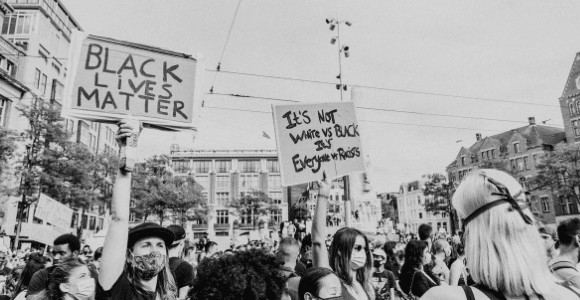Welcome readers! Please subscribe through the buttons on the right if you enjoy this post.
(Read this series from the beginning at Part 1 and Part 2.)

The present economic system of consumption and massive profit at others’ expense is unsustainable ecologically. Jeff Bezos has once again become the richest person in the world, with a net worth of $191.2 billion in the midst of a pandemic with an economic displacement worse than during the Great Depression. I think, too, of President Biden’s reluctance to cancel student debt even though it was one of his campaign pledges. But what stands out to me most is how immigration in the U.S. has been handled over the last four years and I hope that the next four will bring desperately needed change.
The U.S. immigration system has a long racist history. Rather than America becoming a multiracial democracy, its immigration system is designed to keep it as a country where White people are still the majority and where those White lives matter more than the lives of those who are not White. (For a detailed, yet easy to understand recounting of the racial history of immigration in the U.S. see Kelly Brown Douglass’ Stand Your Ground: Black Bodies and the Justice of God.)
Over the past four years, for example, we have seen the immoral crime of the U.S. terrorizing families by ripping children away from their parents just because they sought asylum here. Words from Emma Lazarus’s famous 1883 sonnet “The New Colossus”—“Give me your tired, your poor, Your huddled masses yearning to breathe free”—have been eclipsed by White nationalism and White supremacy. If ever there were a setting in which Jesus followers should follow Jesus in flipping the tables of a system that was irreparably harming those who were already vulnerable, family separation was it. Some Christians actually did respond. But not many.
I’m thankful to see the Biden administration moving toward change on this issue. I’m thankful to see it using more inclusive language, such as “noncitizens” and “undocumented noncitizen” instead of “alien” or “illegal alien,” referring to the “integration” of immigrants into society instead of their “assimilation,” and abandoning language that dehumanized immigrants or was racist.
This is undoubtedly a step toward a welcoming America. And while I’m thankful for these beginnings, I want to see more than linguistic changes, too. It’s going to take real policy change, real action to turn around the Trump administration’s hostile stance and inhuman response to immigrants. We have a chance to do something fundamentally different. My hope is that we transition away from the immigration policies of the past that endeavored to protect Whiteness, and instead take genuine steps to affirm the future of America as a multiracial democracy where every voice matters and everyone, regardless of race, religion, net worth, ability, gender, orientation, or gender expression can have a seat at the table. I know these changes don’t ever happen fast enough, and we have the potential at this moment to leap forward.
My favorite part of Mark’s story this week is actually found in Mark 11:
“Jesus entered Jerusalem and went into the temple courts. He looked around at everything, but since it was already late, he went out to Bethany with the Twelve.” (Mark 11:11)
Jesus’ temple protest was supposed happen the first day Jesus entered Jerusalem, but by the time he arrived at the temple courtyard, it was too late in the day and there were not enough people in the temple courtyard for his protest to make much of a difference. So Mark states he goes back to Bethany with his disciples, spends the night, and comes back the following day.
This makes me wonder about the effectiveness of our own protest. When we do protest, how do we make it matter? How do we make it count?
Again, change for those being harmed never happens fast enough. But in each of our circles of influence we have today and all the potential for change today brings. Each day we still can move a more just, safe, compassionate, inclusive future closer.
Let’s do it.













